This past winter, three Temple University staff members travelled to Germany and France to take part in Fulbright International Education Administrators seminars. These seminars for Fulbright IEA grant winners give U.S. higher education administrators the opportunity to learn about other countries’ higher education systems.
As recipients of Fulbright IEA grants, Temple Director of Scholar Development and Fellowships Advising, Barbara Gorka; Director of Temple’s Honors Program, Amanda Neuber; and Assistant Director for Programming and Student Support in Education Abroad and Overseas Campuses, Erica Nikolaisen learned a great deal about the state of higher education not only in the countries they visited, but also throughout the entire European Union.
Their IEA experiences enabled them to network with their peers, look at their work from a different angle, broaden their understanding, and enhance their ability to excel at their jobs so they can better help the students and/or faculty they serve.
Read about their experiences and the advice they offer to staff interested in applying for a Fulbright IEA grant below:
Barbara Gorka, PhD.
Director of Scholar Development and Fellowships Advising
Location: Germany
“The Fulbright expanded the countries and cultures I’ve experienced, and that’s been really fun.”
Barbara Gorka
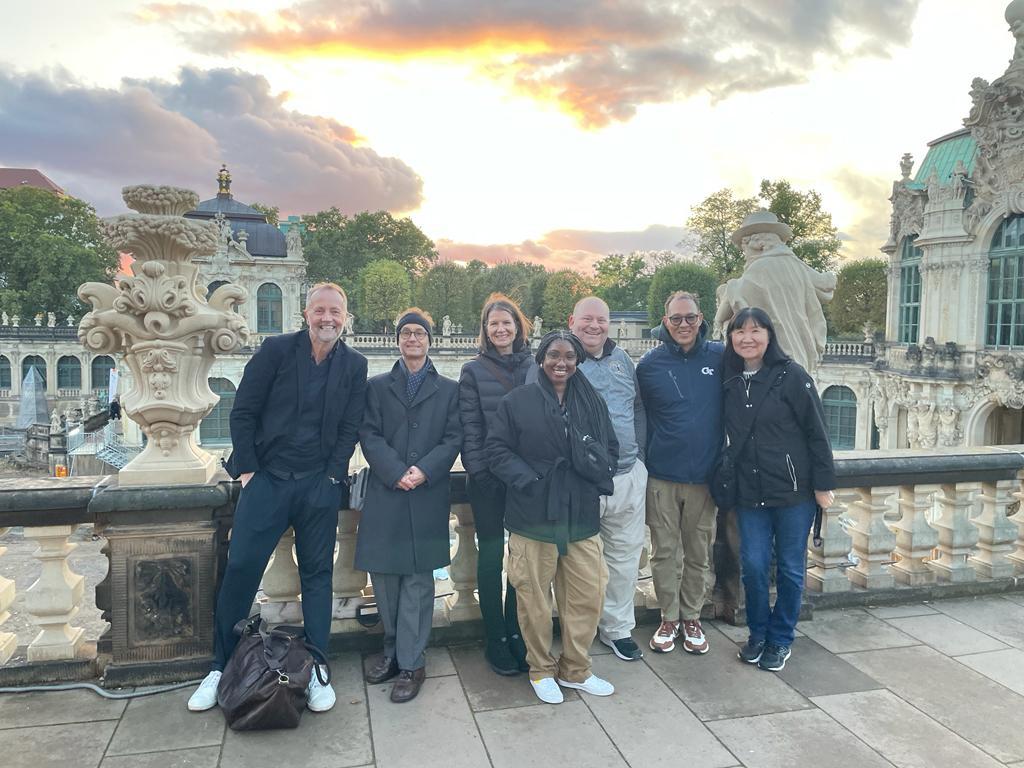
Why she applied:
After spending the past eight years mentoring students and advising them on their Fulbright applications, Barbara Gorka wanted to increase the depth of her understanding of what it’s like to apply for a Fulbright herself. Also Gorka, realizing she wanted to learn new things, thought, “There’s nothing stopping me at my age from studying a new language!”
Personal and professional benefits:
The exposure to issues in higher education in the European Union and Germany has helped her prepare her own students for studying abroad. For example, she learned that the German higher education system is hands off when it comes to their students, making some of our students feel lost or ill-equipped. Now, after participating in the Fulbright IEA, she feels better equipped to advise students how to manage a hands-off environment.
As for the personal aspect, Gorka found it was incredibly invigorating learning something new. Since she’s returned to the United States, she has been reading German literature and watching German TV.
“The Fulbright expanded the countries and cultures I’ve experienced, and that’s been really fun.”
Day-to-day experience in Germany:
Every day was incredibly busy. Most days consisted of attending meetings and talking to German higher education members about various aspects of international exchange. She also went to the Bundestag, the German parliament, and talked with representatives there.
According to Gorka, the best aspect of the trip was the three days of activities she spent with her German peers. She enjoyed collaborating with peers who are also working in international higher education. This shared time gave her work a new perspective.
Advice for peers:
Because of the incredibly busy schedules of higher-ed administrators, Gorka recognizes that it can be difficult to find the time to take advantage of these opportunities. She admits balancing the application process alongside one’s job can be challenging. Yet she encourages her peers to apply. She emphasized what an amazing, rare and rewarding experience it is for an administrator to get time off from their daily job and to reflect on their work from a different angle.
Amanda Neuber, PhD.
Title: Director of Temple University’s Honors Program
Fulbright Location: France
“I wanted to show students that though it’s scary to put yourself out there, you must do it. You learn so much about yourself through the process.”
Amanda Neuber
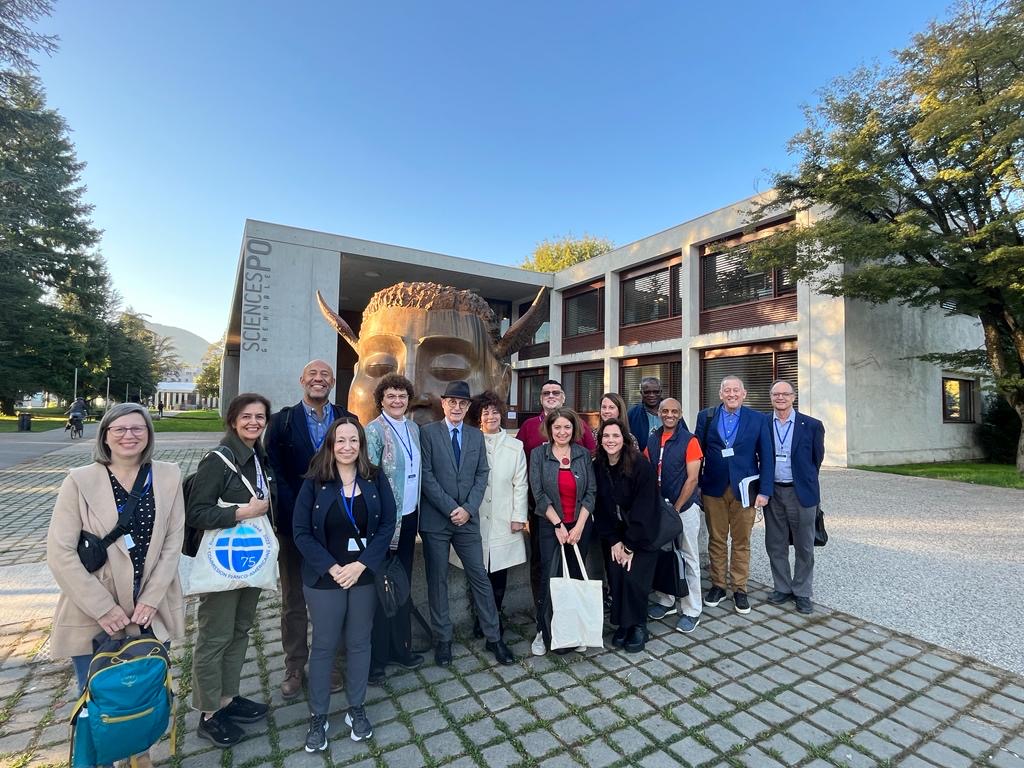
Why she applied:
Amanda Neuber applied for many reasons, the first being the incredible chance to travel to France for two weeks. As director of the Honors Program, she is constantly encouraging her students to apply to anything and everything, and so she felt it her responsibility to lead by example.
“I wanted to show students that though it’s scary to put yourself out there, you must do it. You learn so much about yourself through the process.”
Personal and professional benefits:
Her primary goal when arriving in France was to find pathways for her STEM students to study abroad. STEM students typically must follow complex and rigid tracks, and any detour can delay their graduation, so many are hesitant to go abroad.
Luckily for her students, Neuber discovered that French institutions have many paid summer research opportunities that permit students to use their knowledge in a productive way between semesters, with the bonus of most costs being covered. After discovering this, she was inspired to curate and develop these types of study abroad experiences, not just for France but for a variety of countries.
Also, Neuber was impressed with how all the institutions she traveled to did a great job of creating innovative collaborative spaces for students to work on projects together. This motivated her to redesign the Honors Program space. She was able to obtain funding, and successfully remodeled the Honors’ space using an extensive collection of pictures she obtained from her trip.
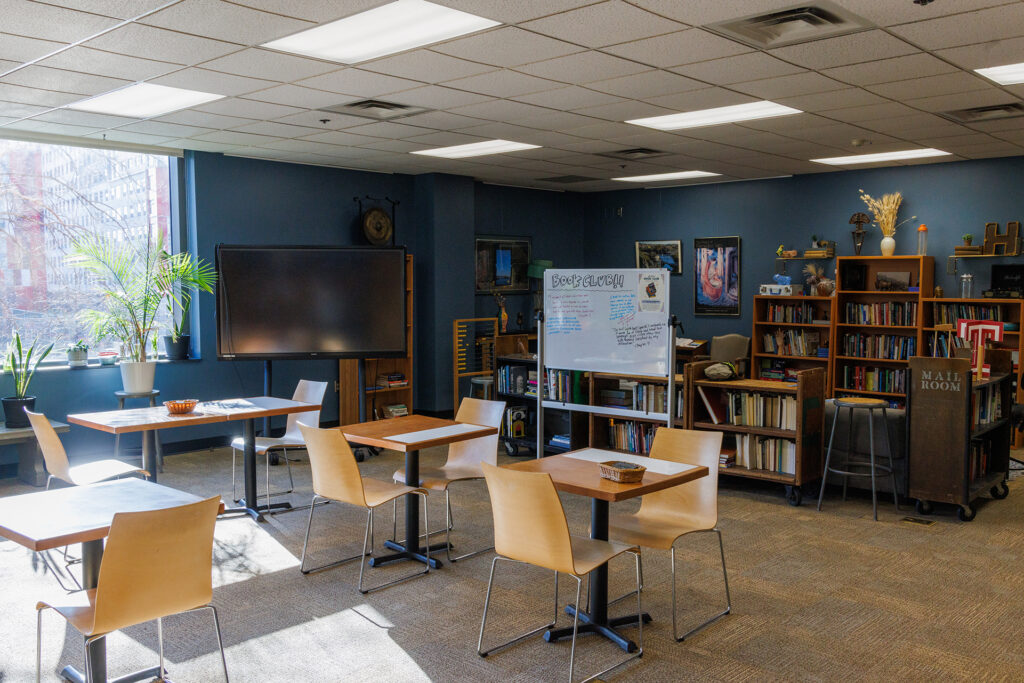
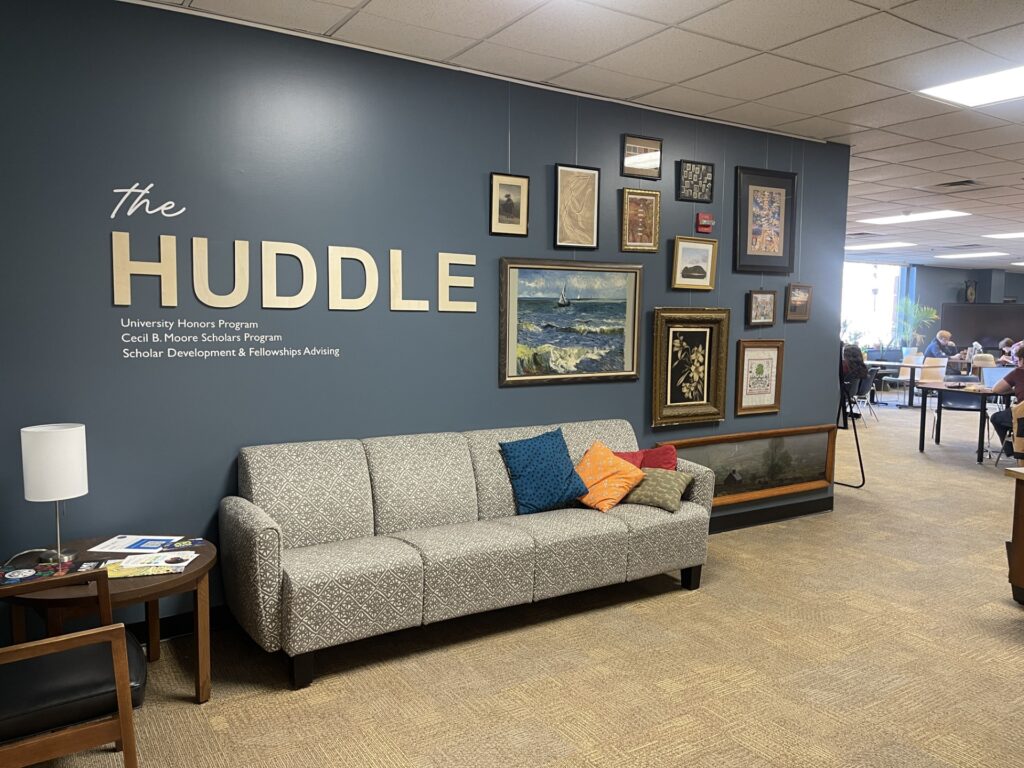
Day-to-day experience in France:
Neuber’s day-to-day schedule in France was incredibly busy. Her first day in Grenoble included a whole day of lectures and seminars on the history of higher education in France. While visiting the University of Grenoble-Alps she met administrators and researchers and learned a great deal about the effort the French government is putting towards increasing the country’s status as a research center. She also learned more about the types of summer research opportunities available for students.
After leaving Grenoble, Neuber’s cohort went to Paris, where they attended presentations by different campus partnership programs in France. There, she also attended a panel on Diversity Equity and Inclusion at the Fulbright French Commission.
Advice for peers:
According to Neuber, though the process of putting oneself out there can be incredibly daunting and time-consuming, the Fulbright IEA is a once-in-a-lifetime opportunity that few administrators take advantage of. Being far into one’s career can make finding the time difficult but as Neuber discovered, the benefits are far-reaching, not only institutionally, but also personally. She points out how enriching it can be to travel to another country and broaden one’s understanding of higher education.
As Neuber tells her students, and staff, “Do it! You won’t win if you don’t apply!”
Erica Nikolaisen
Assistant Director for Programming and Student Support
Location: Germany
“It is vital to start the application early so applicants can gather the necessary data from colleagues across the university and keep Temple’s needs in mind as they make international connections in their host country.”
Erica Nikolaisen
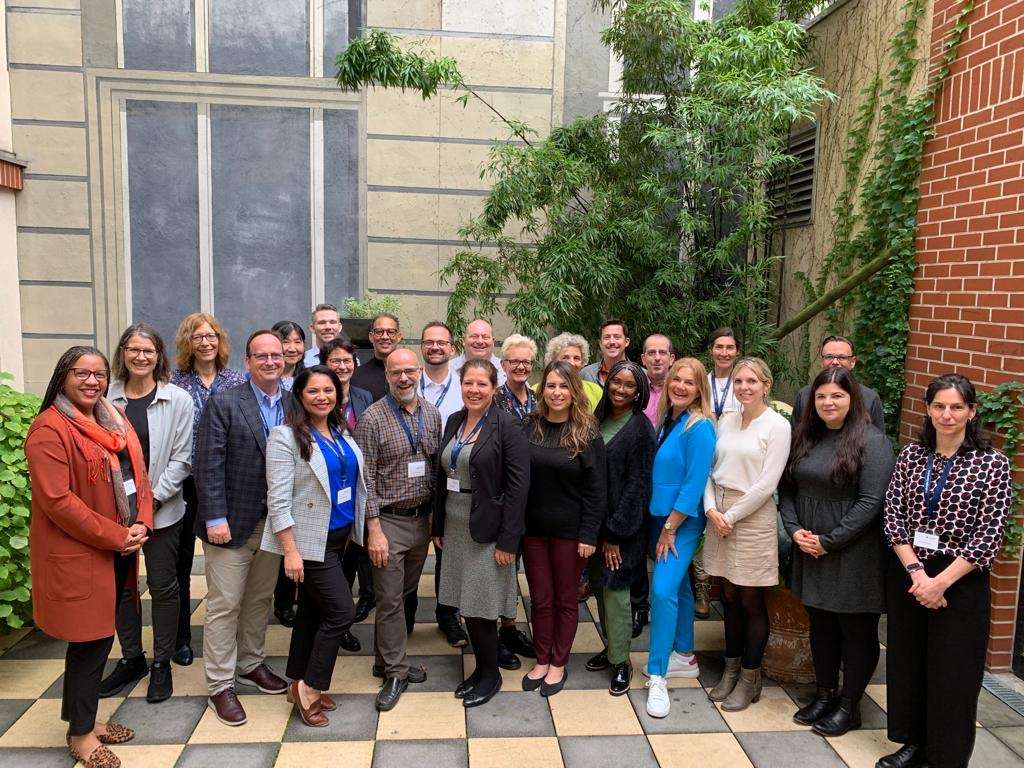
Why she applied:
As assistant director for program management and student support at Education Abroad and Overseas Campuses, Erica Nikolaisen is responsible for advising and preparing students for their study abroad programs. As such, she sought out the Fulbright IEA because she wanted to strengthen the resources and knowledge she can provide to students considering going abroad. Also, she wanted to learn more about the trends in Germany’s higher education system as well as the mobility of higher education in the broader European Union.
Personal and professional benefits:
Through the seminars she attended, Nikolaisen built many professional and personal connections, not only with participating German colleagues but also with the other Americans in her cohort. Networking with colleagues in alumni relations, career services, development, and student life helped her to think more broadly about how best to work with different institutions when it comes to supporting students who study abroad.
Nikolaisen also noted that the opportunity to take part in such an immersive experience; visiting research institutions, the Bundestag, and the U.S. Embassy, gave her a deeper understanding of how transformative a study abroad experience can be for a student.
Day-to-day experience in Germany:
Like Gorka’s and Neuber’s experiences, Nikolaisen’s time in Germany was filled with seminars and panels on the state of higher education specific to the country she visited. Nikolaisen also went to the U.S. Embassy in Berlin and talked with other international education professionals there about the higher education landscape throughout Europe.
However, her experience abroad wasn’t limited to seminars and conferences. She also visited museums and historical landmarks throughout Germany like the Sanssouci Palace in Potsdam.
Advice for peers who want to apply:
She emphasizes that applicants not only represent themselves but the entire institution they are a part of. Therefore, she said, “It is vital to start the application early so applicants can gather the necessary data from colleagues across the university and keep Temple’s needs in mind as they make international connections in their host country.”
By Massin Larbi, CLA ’25, Global Engagement writing intern
